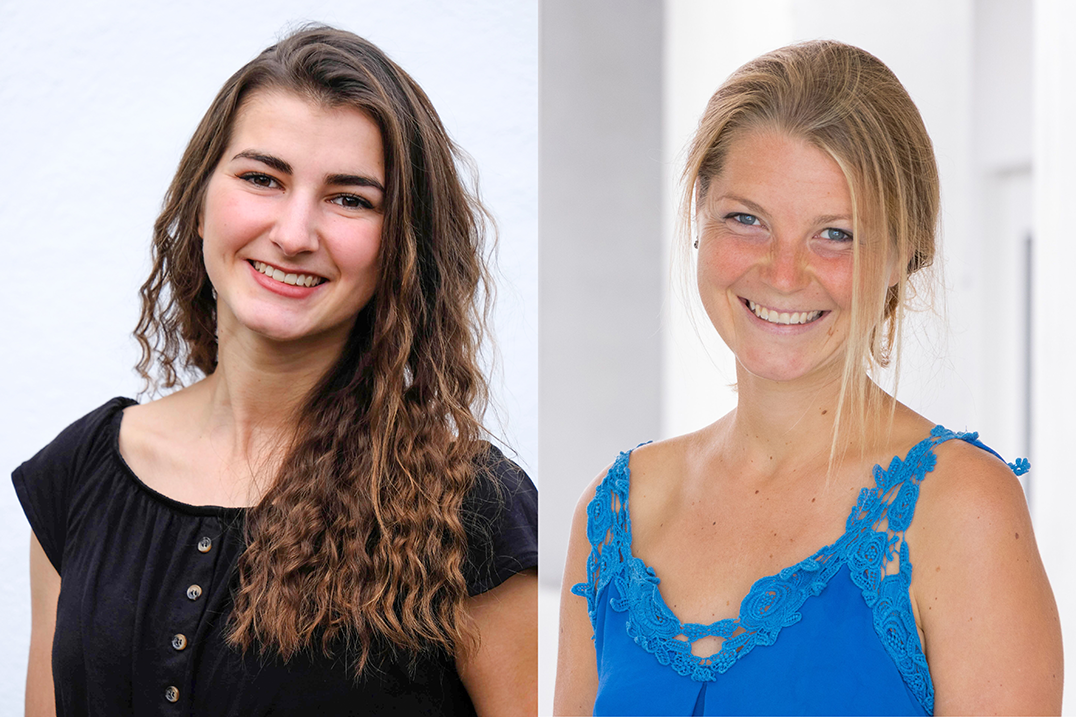News & Press
The Influence of Climate Change on the Syrian Civil War and Cognitive Affective Maps as a Method
Sophia Hiss and Lisa Reuter receive the 2023 Erasmus Prize of University College Freiburg

University College Freiburg (UCF) of the University of Freiburg has awarded the Islamic Studies specialist Sophia Hiss and Dr. Lisa Reuter, a psychologist, the “2023 Erasmus Prize for the Liberal Arts and Sciences.” UCF presents the prize for research theses that approach their topic in an exemplary manner, including with respect to interdisciplinary aspects, thereby creating a bridge between different disciplines. The honour is conferred annually in two categories – for a Bachelor’s or Master’s thesis, and for a dissertation or postdoctoral thesis. Funded by a bank, the “Sparkasse-Nördlicher Breisgau”, the categories are endowed with 1,500 euros and 3,500 euros respectively. University College Freiburg is an interfaculty platform for promoting interdisciplinary teaching at the University of Freiburg. It has a Bachelor Program in Liberal Arts and Sciences.
Sophia Hiss: Climate Change and the Syrian Civil War
In her Bachelor’s thesis for the Oriental Seminar at the University of Freiburg, Sophia Hiss investigated the question of what influence climate change and its impacts have had on the outbreak of civil war in Syria. She examined in particular the role that the droughts and crop failures of 2006 and 2010 played in the uprisings in 2011. In her work she criticises that the voices of Syrians have been underrepresented in most previous studies.
Hiss’ thesis applies, among other things, Marwa Daoudy’s concept of Human-Environmental-Climate Security (HECS) in conjunction with the results of Hiss’ own qualitative interviews. In this way, she presents a differentiated and interdisciplinary picture of the ecological, political, economic, societal, and social contexts in which environmental changes and extreme weather unfolded on the eve of the uprisings. Hiss goes on to establish which regions and population groups were particularly vulnerable to these changes. Hiss concludes that these vulnerabilities as well as poor living conditions in rural areas did enter into the protests, but that they generally served as a vent for frustration about years of grievances. She also infers the unrest was primarily inspired by uprisings in other Arab countries.
Lisa Reuter: “Cognitive-Affective Maps”
In her cumulative doctoral thesis at the Institute of Psychology and the University of Freiburg Cluster of Excellence “Living, Adaptive and Energy-autonomous Materials Systems” (livMatS), Dr. Lisa Reuter investigated the possibilities and limits of “Cognitive Affective Maps” (CAMs), a method developed by Paul Thagard. CAMs are maps that depict the content of a person’s or group’s belief system in the shape of visual networks, allowing them to be assessed as positive, negative, neutral, or ambivalent. This methodological approach is used in mixed methods research. Reuter applied CAMs to three different case studies and analysed the results. In her work, she used software that allows an individual to easily visualise experiences and impressions on a given topic – thereby making use of larger and standardised CAM data sets possible.
With the aid of CAMs, Reuter examined whether the cognitive-affective perceptions of the corona pandemic were altered by taking regular walks. A cross-sectional study that included participants from Germany and Canada was dedicated additionally to the perceived threat of the coronavirus. In a third study, Reuter investigated how the reproduction of natural phenomena is perceived during the development of new technologies. She also combined psychological and philosophical approaches in this work. Reuter cooperated with partners in political science and philosophy in her studies. She has arrived at the result that computer-aided applications of CAMs create bridges between qualitative and quantitative methods, adding that precisely during interdisciplinary work they unify of the advantages of both approaches.
Contact:
University and Scientific Communications
University of Freiburg
Tel.: 0761/203-4302
E-Mail: kommunikation@zv.uni-freiburg.de
